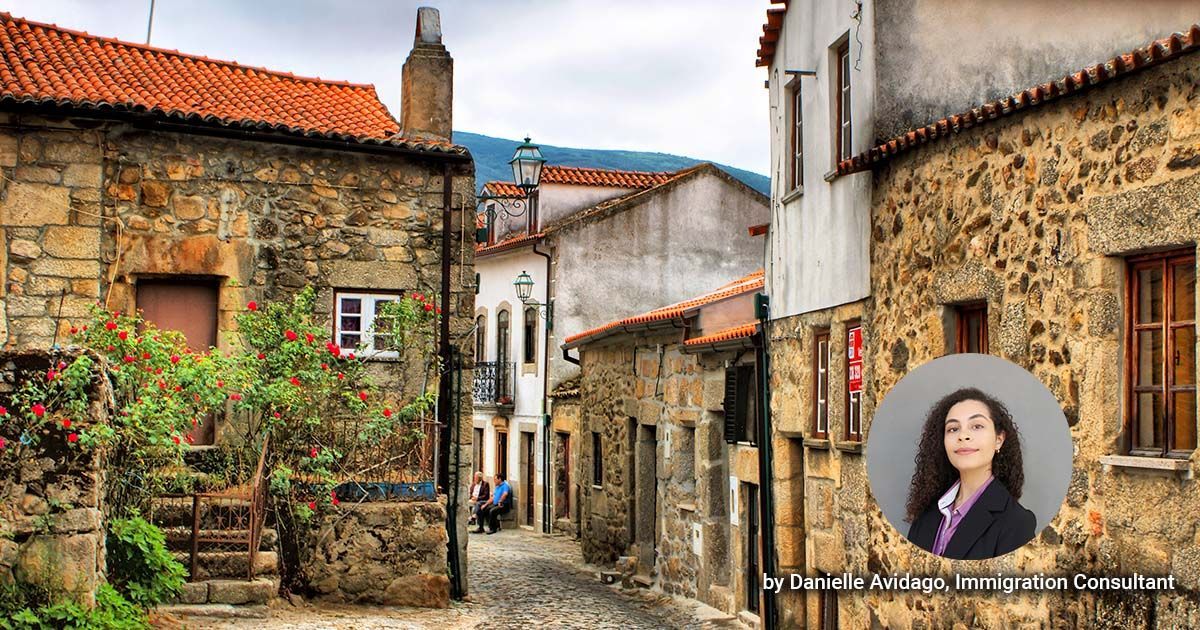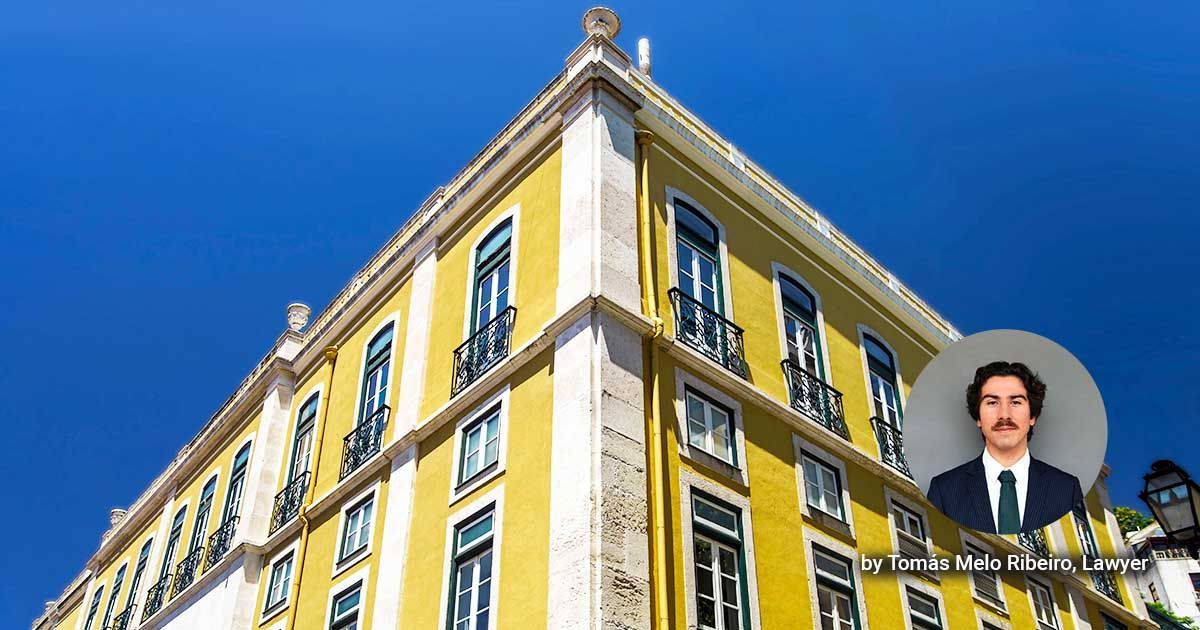Navigating Portugal’s Visas: From D1 to D9, Your Guide to Finding the Perfect Path

Joana Torres Fernandes | Partner
With a rich history of diversity and hospitality, Portugal extends a range of visas and permits for those looking to move into the country. Whether you seek a tranquil retreat, a new home, invest or retirement, Portugal's welcoming atmosphere makes it an ideal choice.
The immigration policies are designed to be flexible, offering easy access for foreigners with various needs. However, you might feel overwhelmed by the visa options in Portugal and rest assured you are not alone. Many face confusion over categories like the D2 (Entrepreneur), D7 (Retirement), and D8 (Digital Nomad). Were you aware, for instance, that the Portugal’s Golden Visa falls under the classification of a D9 Residency?
In today’s Insight, we will comprehensively explore all available categories, spanning from D1 to D9, with the intention of facilitating a clearer understanding of the alternatives at your disposal.
Portugal's D1 Visa, also known as the "Work Visa," offers a pathway for non-EU citizens to live and work in the country. Key details include the basic requirement of having a valid work contract or work promise in Portugal for a minimum of one year. The application process involves obtaining a special residence visa from a Portuguese Consulate or, alternatively, submitting an Expression of Interest (Manifestação de Interesse) in Portugal in our view, it is advisable to initiate the procedure with the special-purpose residence visa to enhance the chances of approval. Additionally, immediate family members can obtain residence permits under "family reunification" rules without the need for the special visa.
Portugal's D2 Visa offers a pathway for non-EU citizen freelancers and entrepreneurs seeking residence and work opportunities in the country. Obtaining a residence visa from the Portuguese Consulate or submitting an Expression of Interest (Manifestação de Interesse) in Portugal leads to a residence permit. For entrepreneurs, eligibility hinges on investment in Portugal or demonstrating the availability of funds for investment, supported by a comprehensive business plan detailing the investment's key aspects.
Freelancers must showcase professional qualifications, while entrepreneurs must outline their investment plans to align with the country's economic objectives.
Portugal offers the D3 Visa, also known as the "Highly Qualified Professionals Visa," designed for non-EU citizens seeking to live and pursue highly qualified professional activities in the country. The visa requires a valid work contract in Portugal for at least a year, with an annual salary meeting specific criteria. Demonstrating higher income could enhance your application. Additionally, applicants must show proof of professional qualifications for their intended role. This pathway not only benefits the main applicant but also extends to immediate family members, offering them a smoother transition under family reunification regulations.
Portugal’s D4 Visa is designed for non-EEA nationals planning to stay in Portugal for educational purposes exceeding three months. It suits students, exchange students, and those pursuing professional or voluntary internships. Note that for stays under 90 days, a Schengen Visa is required, except for countries with specific agreements waiving this prerequisite.
Portugal's D5 Visa is tailored for college and university students, offering a streamlined path to higher education in the country.
Portugal’s D6 Visa is allocated for family reunification purposes in Portugal. Legal residents in the country can utilise this visa to bring their spouse, dependent children under 18, and financially reliant parents over 65 to Portugal.
Portugal’s D7 Visa, also known as the "Passive Income Visa" or "Retirement Visa," provides a residency option for non-EU citizens seeking to reside in Portugal based on regular passive income. Applicants must demonstrate a net passive income of €9,840 per year, with additional amounts required for spouses and dependent children. Consulates may exercise discretion in assessing applications, making it advisable to provide evidence exceeding the minimum income requirements for a smoother process. The application process involves obtaining a special residence visa from a Portuguese Consulate based on the applicant's current legal residence, regardless of nationality. This visa leads to residence permits for immediate family members under family reunification rules without the need for a separate application. By showcasing sufficient passive income sources such as pensions, rentals, or investments, applicants can secure the D7 Visa, offering flexibility for professional activities in Portugal. The D7 Visa presents an appealing option for individuals planning to relocate to Portugal, combining financial stability requirements with the opportunity to reside in this lovely European country.
Portugal's D8 Visa, known as the "Digital Nomad Visa" or "Remote Worker Visa," offers non-EU citizens a pathway to reside and work remotely in the country. The key requirement is demonstrating an average income equivalent to four times the Portuguese minimum wage per month, around €3,280.00 in 2024. Higher income levels can enhance the application's prospects, as Consulate officers hold discretionary power during the assessment process. The visa application precedes the residence permit request and should be submitted at a Portuguese Consulate based on the applicant's current legal residence. Immediate family members can also obtain residence permits under family reunification rules, streamlining the process for a cohesive relocation to Portugal.
Applicants should prepare to showcase their financial stability and meet the income criteria to secure the D8 Visa for Portugal. The streamlined procedure involves first applying for a special residence visa at the appropriate Consulate, even if visa-free entry is permissible based on nationality. Family members can leverage the family reunification option for residence permits, while additional income sources within the family unit can expedite the overall process.
The D9 Visa commonly referred to as Portugal's Golden Visa, it is specially designed to investors seeking diversification and access to Europe. The "Golden Visa" programme, also known as “ARI”, offers residency through eligible investment routes like capital transfers, funding national projects, or creating new jobs in Portugal. Each route has specific requirements to support the country's growth in various sectors. Investment in low-density areas is encouraged.
Before concluding, Portugal residence permits, except for the Golden Visa programme, require applicants to obtain a Portuguese Tax Identification Number (NIF), open a bank account, and secure long-term accommodation. These prerequisites highlight Portugal's dedication to upholding residency protocols. After five years, holders can continue renewing the residence permits, apply for permanent residency, or seek Portuguese citizenship. This structured process ensures transparency and compliance for individuals seeking residency in Portugal with multiple possibilities for their future.
Should you wish to further discuss this matter, don't hesitate to
contact us. Our team is dedicated to providing comprehensive support to navigate these legal waters with the utmost diligence and precision.











